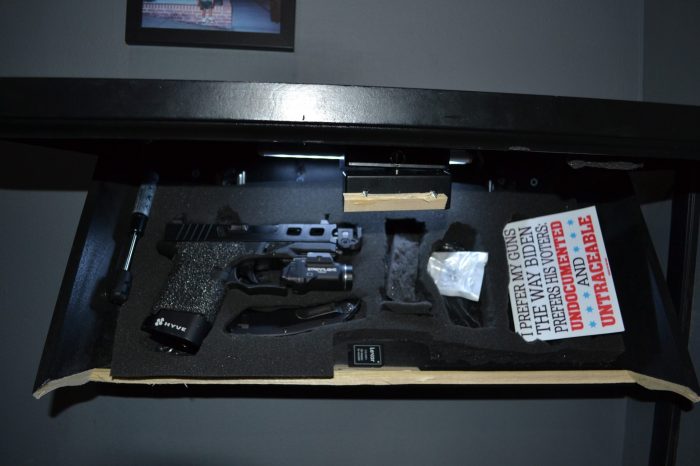A Moment of Truth in The Iranian Crisis
The Mideast, was there ever a time when its blustering winds grew still or its roiling spirit found peace? The war drums — they’re beating — beating with the fury of ancient hatreds. In the world’s largest tinderbox, overtaxed centrifuges crank unabated and unimpeded in underground Iranian bunkers. In an inexorable march toward madness, energy stored in atoms is being converted into heat to ignite a chain reaction capable of producing a nuclear warhead. An Iranian bomb feels like a cold shiver down the spine of the civilized world.
With the clock ominously ticking, interminable negotiations, biting economic sanctions and even a covert war to eliminate the regime’s nuclear scientists have not succeeded in derailing their killing machines. What is called soft power has failed; muscular diplomacy is all that remains.
It’s a moment of truth: the world must choose between being a master of its fate or a slave to it. President Obama is scheduled to meet with Israeli Prime Minister Benjamin Netanyahu, presumably to map a strategy preventing the irrevocably untenable: Mullahs with nuclear bombs. President Obama hasn’t, until recently, approached the crisis with the alacrity that Israel had expected or desired. An unmistakable coolness, if not distrust, characterizes the relationship between the prime minister and the president.
With the United States firmly anchored to global affairs, there has not been a world war in 67 years. This is not the time, as at least one presidential candidate would counsel, to change course and retreat from our global responsibilities. The days of yore when America was unconnected to the security of the larger world should have no account except as a distant memory. There is, however, profit in reviewing how America evolved from its isolationist past to the leader of the free world in order to clarify our future course of action.
With America geographically insulated by two oceans, American military might, via the Monroe Doctrine, focused almost exclusively on shielding the Western Hemisphere from European powers seeking to impose despots and dictators upon budding South American republics. With the dawning of the 20th century, however, circumstances in the world and America’s place in it had changed radically. As European influence gradually dissipated, America’s importance as the fourth largest population in the world and its fastest industrial power grew dramatically. At this crossroads in history, the man and the moment met when Theodore Roosevelt, the nation’s young and brash president, thrust himself upon the seas of high-stakes diplomacy. Highly intelligent, conspicuously erudite and from his earliest youth richly cosmopolitan, Roosevelt seemed blessed with an unerring instinct for blending power politics with the subtleties of diplomacy.
With his “Speak softly but carry a big stick” approach, Roosevelt valued the diplomatic arts but believed, with Frederick the Great, that diplomacy independent of military might is roughly equivalent to a band without musical instruments. Foregoing a demilitarized peace, over which he presided, Roosevelt built a navy with global reach and defended American interests without ambiguity or equivocation, making the United States a major world power. Friend and foe readily understood that Roosevelt never put his finger to the trigger unless intending to pull it. His foreign policy remains unparalleled and his example worthy of emulation.
With Roosevelt’s departure, the moralistic and scholarly Woodrow Wilson, influenced by the carnage of WWI, changed the game plan. Wilson envisioned a new world order by promoting the dissemination of democracy, collective security agreements and a universal system of law. This was abruptly shattered when the U.S. Senate rejected membership to the “League of Nations,” the architectural foundation of Wilson’s conceit in building the world a New Jerusalem. Not that America reverted back to Roosevelt’s unilateralism and the idea of national interest trumping all and every consideration. Instead, the United States fell back into its old habit of isolationism, a tendency perilously accentuated by the onslaught of the Great Depression. Even with the rising and sweeping barbarism of the 1930s, a cataract that threatened to submerge both Europe and Asia under a tide of tyranny, the vice-like grip of America’s self-imposed sequestration would fail to loosen.
It was only after WWII and the subsequent Soviet bacillus threatening to infect the blood stream of Western Europe that America’s idealistic pretentions subsided and in its stead alliances and commitments of unprecedented scope and reach were securely erected. In the shattering aftermath of WWII, experience would triumph over history, pragmatism over idealism and Wilson’s embracing internationalism over Roosevelt’s self-confident solipsism. The Wilsonian world had dawned and today we still bask under its sun.
The seeds of this new world were sowed even before the war’s end. A gathering at Bretton Woods in New Hampshire inspired the leading democracies to establish rules for commercial and financial relations among the world’s major industrial states. The International Monetary System, the World Bank, an exchange rate tying currency to the U.S. dollar and an International Monetary Fund, which bridged temporary imbalances of payment, altered the dynamics that ruled the earth. When these measures proved insufficient in uplifting prostrate economies, the U.S. Marshall Plan provided transfusions of financial aid to rebuild Europe through grants rather than loans.
The United Nations, a descendent of Wilson’s League, was established and collective security agreements, principally NATO, maintained the balance of power and deterred communist aggression. More or less, these arrangements brought great success. Democratic economies were inextricably welded together; Western military alliances prevented world wars and the nations who lived under their umbrella prospered.
As the current Iranian crisis deepens, subscribing to Wilsonian coalitions is preferable, but our desire for cooperative enterprise should not blind us from acting independently when the gravity of the situation demands it. Once we determine our means to be commensurate with the mission, we must not fail to act with what Colin Powell called “overwhelming force.” In Roosevelt’s words, righteousness unbacked by force is as wicked in the full and even more mischievous than force divorced from righteousness.
An Iranian bomb is a massively destabilizing event and is clearly one of those occasions where a call to action is imperative. A summons to war is never to be taken lightly, but allowing a radical regime like Iran, one that harbors terrorists and is in thrall with apocalyptic language and threats, to acquire nuclear weapons will be anything but a moderating influence. Indeed, it will inflame an already volatile region and trigger a nuclear arms race with other Arab powers. If Iranian policies cannot be changed by negotiation or sanctions (how long can we wait?) we are compelled to resort to other means. The president’s recent rhetorical toughness voicing the unacceptability of an Iranian bomb is a tardy but welcomed change. Iran, after all, is not the USSR and a combined U.S. and Israeli strike, carefully planned and executed, will almost certainly destroy its buried nuclear reactors and overthrow the regime, a secondary objective as critical as the first. Israel probably has the capability to accomplish the task alone, but we need to fully cooperate so as to maximize the mission’s success, which is why it’s essential that Obama and Netanyahu bridge their differences.
War is always unpredictable and capricious. There are unknowns and unknown unknowns. Risks cannot be eliminated. Condemnation of the attack will echo worldwide; anti-Americanism will resurface with a vengeance; the U.N. will deplore Israeli and American war crimes, China, who has an unseemly relationship with Iran, will denounce the attack and so, most likely, will Russia. A war-weary America will not fully embrace another military conflict; tens of thousands of missiles may well be fired at Israel from Hamas in Gaza and Hezbollah in Lebanon. The breadth of such an attack may overwhelm Israeli air defenses resulting in significant casualties and potentially widen the theatre of hostilities.
But it would be folly just to consult our fears about what will happen by acting without first recognizing the consequences of doing nothing. We need to ask ourselves what Woodrow Wilson asked before committing U.S. troops to Europe in WWI: Is it right? — Is it just? — Is it in the interest of mankind? The answer to all three is yes.































